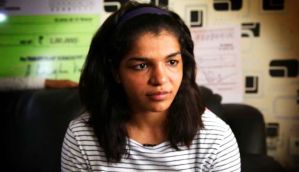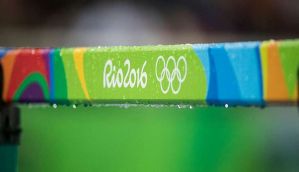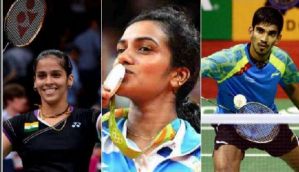
Sport has been seen as a potential saviour of broadcast television's "mass" audience. One of sport's main virtues is that people want to watch it live, which gives broadcasters a mass audience that can be sold on to advertisers.
This has seen television broadcasters pay colossal amounts for sports media rights, such as the A$1.8 billion deal for NRL or A$2.5 billion for AFL.
But sport could soon follow other TV formats in breaking away from the long-established television broadcast model. Like other program formats, sport is becoming widely available via screens other than the living room television, and is being supplied by companies other than television broadcasters.
There have been individual examples of this phenomenon covering different sports in different nations, but until this Olympic Games, there had yet to be a global case study.
Due to the Olympics being a global event and the media produced by the International Olympic Committee's (IOC) own media company, the Rio Olympics could be an opportunity to undertake a global test case for the future of sports broadcasting. And given the money involved, there could be a lot at stake for traditional television broadcasters.
Media rights: a key for sports revenue
As with many sporting organisations, the IOC relies heavily on the revenue from its media rights, which equated for 74% of its revenue source for the 2013-16 period.
This shows there is a lot at stake in regards to the media rights and, indeed, the future of the Olympics. If broadcast media wanes or Olympics audiences fade, then the entire Olympics funding model could collapse. This is compounded by the increasing expense in hosting each Olympics.
This is one reason the IOC has made deals years in advance with several broadcasters. Australia's sole media rights holder, Seven, has the Olympics contract until 2020. The US broadcaster, NBC, is contracted until 2032.
The issue is whether these long contracts will remain viable for the full term, particularly as the media landscape is changing continually.
The IOC has made attempts to future-proof its media contracts within the contract terms. Seven's contract states it has "acquired all of the screen rights (to the Olympics) and any screen yet to be invented".
But for television broadcasters to continue to spend large amounts on media rights they must also see favourable outcomes, which is reliant on audience ratings and the advertising dollars they bring.
TV ratings are down
Early reports are that the television audience for the Rio Olympics are lower than previous Games.
In the US it has been reported that the television ratings for the Opening Ceremony had declined by 35% in comparison to London 2012. This makes the NBC Olympics broadcast ratings the lowest since 2004.
In Australia, Seven is also receiving lower ratings, which could be the lowest since the OZTam system started in 2001.
Despite the decline in TV audiences, NBC has claimed to have made back the US$1.2 billion it paid for the rights to Rio. NBC is also expecting that the Rio games will be "the most profitable Olympics in history" for the broadcaster.
However, the media landscape has already changed significantly since the last Olympics, and the IOC is already starting to respond. For the Rio Games, the IOC's own Olympic Broadcasting Services (OBS), will produce live 360-degree video and online streams of individual sporting events available via the Olympic Video Player (OVP).
It appears that there has been a sizeable uptake of the streaming service. Akamai, the company responsible for the video streaming for Rio, has stated that by day three of the games it had already served more video data than for the full 17 days of the London Games in 2012.
Along with the additional video formats and distribution approaches, broadcasters are also signing contracts with the social media platform Snapchat.
This could be an ongoing trend where social media platforms are an integral part of sports media broadcasts in the future. Twitter recently announced it will start to stream one Major League Baseball game and one National Hockey League match every week.
Rio a test case for the future of sport broadcasting
Can we compare the media coverage of one event to another that occurs four years later? Particularly at a time when we have witnessed massive changes in media distribution and consumption?
As has been seen with Rio, while the TV ratings are down, it appears that the broadcasters have still been able to retain an audience and make the Olympics financially feasible. But can this continue into the future?
If sporting organisations are to keep the production of media in-house, this could impact the way in which they bundle the media rights. There is also potential for rights to be broken apart.
We could see bidding wars between national television broadcasters and global media organisations such as Twitter, Facebook and YouTube, all of which can distribute content to a global audience.
The Rio Olympics will definitely give sporting organisations, media broadcasters and sporting fans a lot to think about in regards to the way in which sports are distributed in the future.
![]()
Marc C-Scott, Lecturer in Screen Media, Victoria University
This article was originally published on The Conversation. Read the original article.
First published: 19 August 2016, 12:47 IST






![BJP's Kapil Mishra recreates Shankar Mahadevan’s ‘Breathless’ song to highlight Delhi pollution [WATCH] BJP's Kapil Mishra recreates Shankar Mahadevan’s ‘Breathless’ song to highlight Delhi pollution [WATCH]](https://images.catchnews.com/upload/2022/11/03/kapil-mishra_240884_300x172.png)

![Anupam Kher shares pictures of his toned body on 67th birthday [MUST SEE] Anupam Kher shares pictures of his toned body on 67th birthday [MUST SEE]](https://images.catchnews.com/upload/2022/03/07/Anupam_kher_231145_300x172.jpg)






